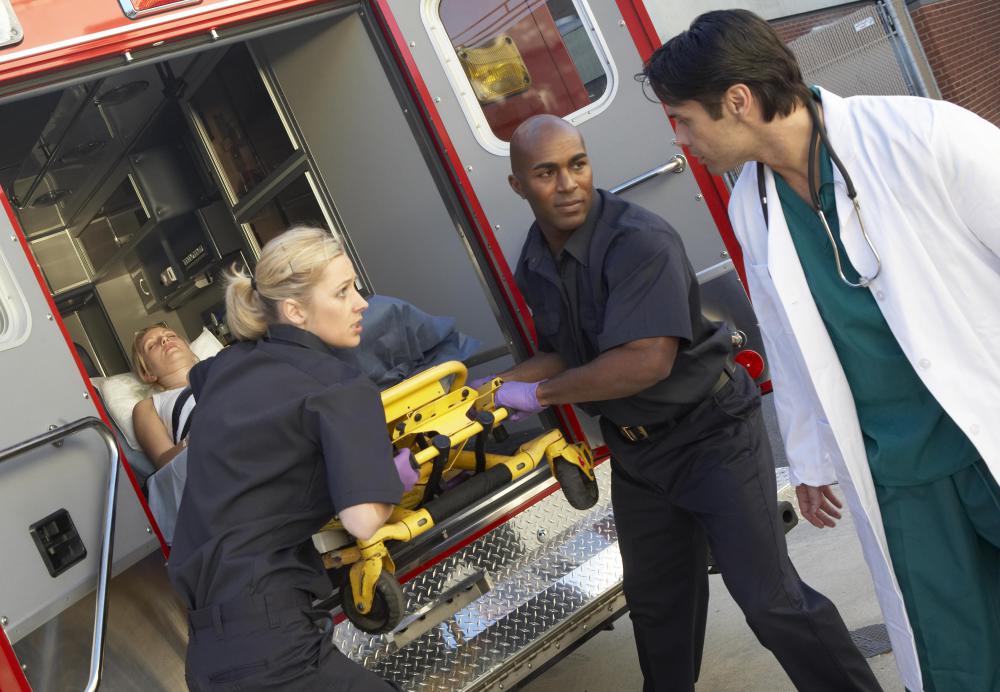At WiseGEEK, we're committed to delivering accurate, trustworthy information. Our expert-authored content is rigorously fact-checked and sourced from credible authorities. Discover how we uphold the highest standards in providing you with reliable knowledge.
What Are the Necessary Critical Care Skills?
Job proficiency is important in any profession, but critical care skills could literally make the difference between life and death. Fast decision-making is one of the key basic skills, but even seemingly mundane abilities such as attention to detail and organizational skills can significantly increase an intensive care unit or critical care unit’s efficiency. Other key critical care skills range from empathy to the ability to withstand stress. In addition, individuals will likely need specialized medical knowledge on procedures and treatments for various life-threatening conditions.
Several individuals work in a critical care capacity. Paramedics often serve as the first line of defense against dangerous and immediate health issues. They transport distressed individuals and attempt to keep patients stable until emergency room workers take over. Doctors and nurses in these medical units work together to further stabilize patients and prepare them for either emergency surgery or a stay in an intensive care unit. Since all of these occupations operate at such a rapid and chaotic pace, high levels of energy are extremely beneficial.

From paramedics to surgeons, core critical care skills are essential. Critical care cases are defined by unpredictability and complications. As such, workers do not have the luxury of mulling over choices or weighing the pros and cons of a course of action. Decisions must be arrived at swiftly and in the most intense settings. Individuals therefore need quick mental capacity, a knack for problem-solving, and an abnormally high stress threshold.

Just because critical care usually unfolds at a rapid pace does not mean that work can be sloppy or careless. In fact, meticulousness should be a prime component in a critical care skills arsenal. Even the slightest misstep in using emergency equipment or the slightest alteration in medication dosages can quickly turn a serious situation catastrophic. Having all necessary materials arranged and ordered beforehand can make the hurried environment a little less hectic and cluttered, so organizational critical care skills can prove very helpful.

Critical care may seem like a piece of complicated machinery where all of the parts must work just right, but at its core emergency healthcare is also about human interactions. All of the people need to work together efficiently as a team. Individuals should be open to suggestions and willing to both lead and let others take the lead when necessary. Perhaps most importantly, workers cannot lose sight of the individuals who are counting on them for health and safety: the patients. Empathy and compassion are arguably the most crucial critical care skills.
Severe illness or trauma can impact nearly every system of the body. Critical care workers should have a solid background and familiarity with each of these systems, from the cardiac to the respiratory. Proficiency with the various types of specialty equipment and techniques is needed as well. These experiences might range from surgically removing obstructive materials like bullets to inserting breathing tubes and heart monitoring equipment.
AS FEATURED ON:
AS FEATURED ON:













Discuss this Article
Post your comments